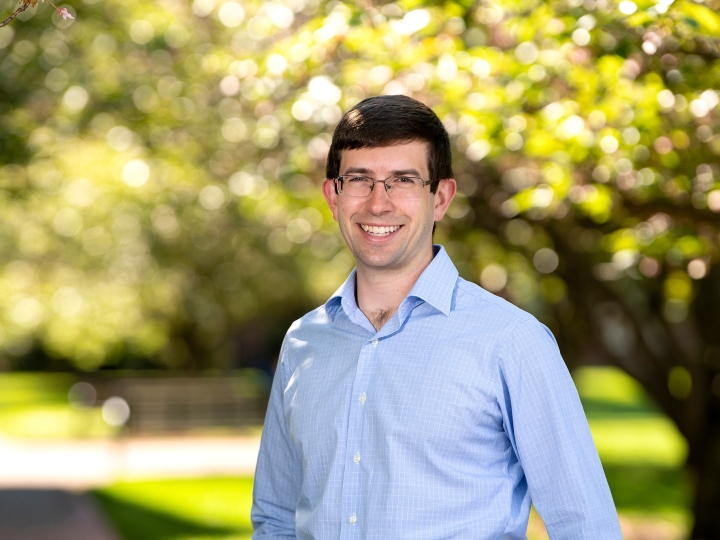
Professor Eric Santanen, Management
July 18, 2020
Because everything is online, our activities and interactions leave a data trail that did not used to exist. That data reveals so much about you and what is important to you. It conveys to others your value set.
The students Professor Eric Santanen, management, teaches at Bucknell grew up online and have frequently used social media from the time they could type. Yet Santanen's classes on these technologies and what they reveal about their users almost never fail to surprise his students.
The data trail we leave behind with every click, like and share, every app we download and privacy policy we accept can be used in ways we seldom consider, he says. It can even be used to manipulate our behavior. Recognizing that sometimes comes as a shock for students who pride themselves on their use of technology.
"It's an interesting insight to gain about yourself when you realize that something is so familiar to you, so integral in your life, and you really don't have a thorough understanding of how it functions or the impacts it has on those who use it," Santanen says.
One of the most extreme examples of how that data can be abused is the 2018 Cambridge Analytica scandal, which Santanen has written about. The affair concerned a political consulting firm that harvested personal data from millions of Facebook users, used it to create psychological profiles, then served them targeted political ads in the run-up to the 2016 presidential election. Santanen says Cambridge Analytica demonstrates the "electronic template to push your buttons" that tech companies have at their disposal and how it can be used to undermine not only democracy but even freedom of choice.
"People think they're resilient and can't be manipulated, but they can," he says. "If you get bombarded with something enough times you will eventually begin to change the way you think."
Understanding the implications and ripple effects of his own work is what inspired Santanen to make the leap from his former career in software development to academia. As a software engineer, Santanen worked on monthslong projects writing tens of thousands of lines of code for the pharmaceutical and finance industries, only to lose sight of how users interacted with his creations when projects ended. He wanted to know more about how information systems could help organizations do their work, which led him to more questions about the role of technology in our society.
"Issues such as deskilling, job displacement, unemployment start to show up," he says. "Technology does not affect all people in the same way, and it does not universally bestow benefits — and a lot of people assume quite the opposite."
To transform the tech industry into one that better protects its users' data and respects individual rights will require ethical leaders who are willing to take a stand to create change from the inside — even at the expense of maximum profit. That's why it's critical his Bucknell students learn about technology's pitfalls as well as it's potential, Santanen says.
"It's about making leaders who are more thoughtful about their decision-making and more sensitive to the social impacts of the decisions they will make every day," he says. "That's why we are a college of management and not of business. We're taking a stand to say that this is important to all of us. It's about building a better world."

